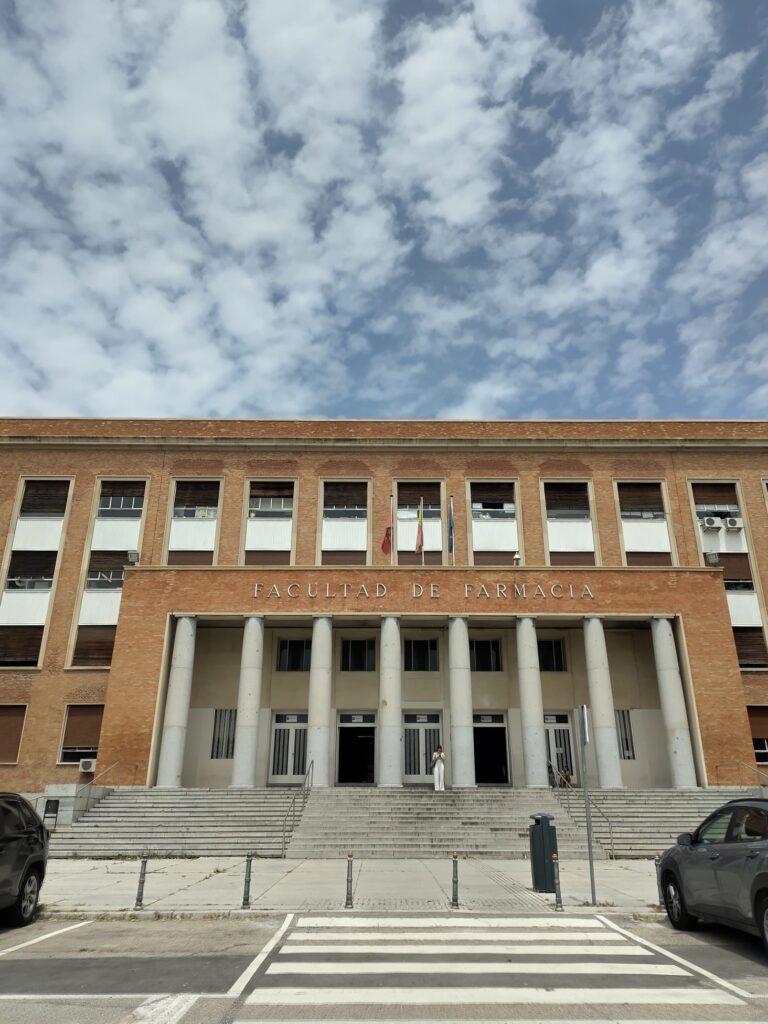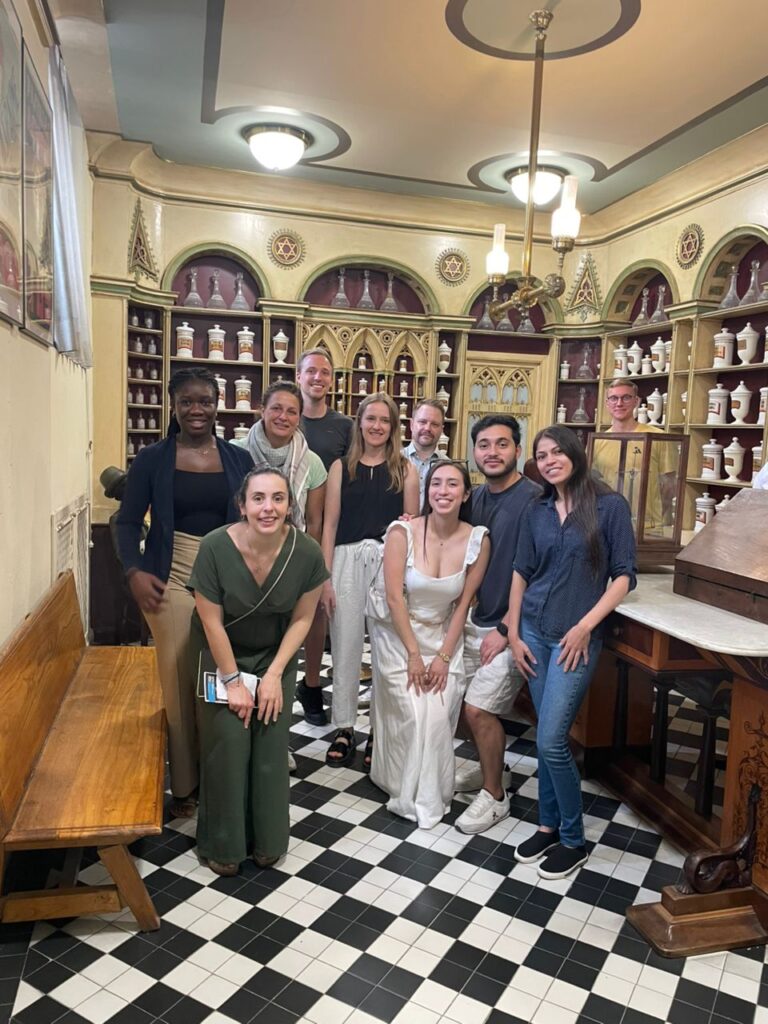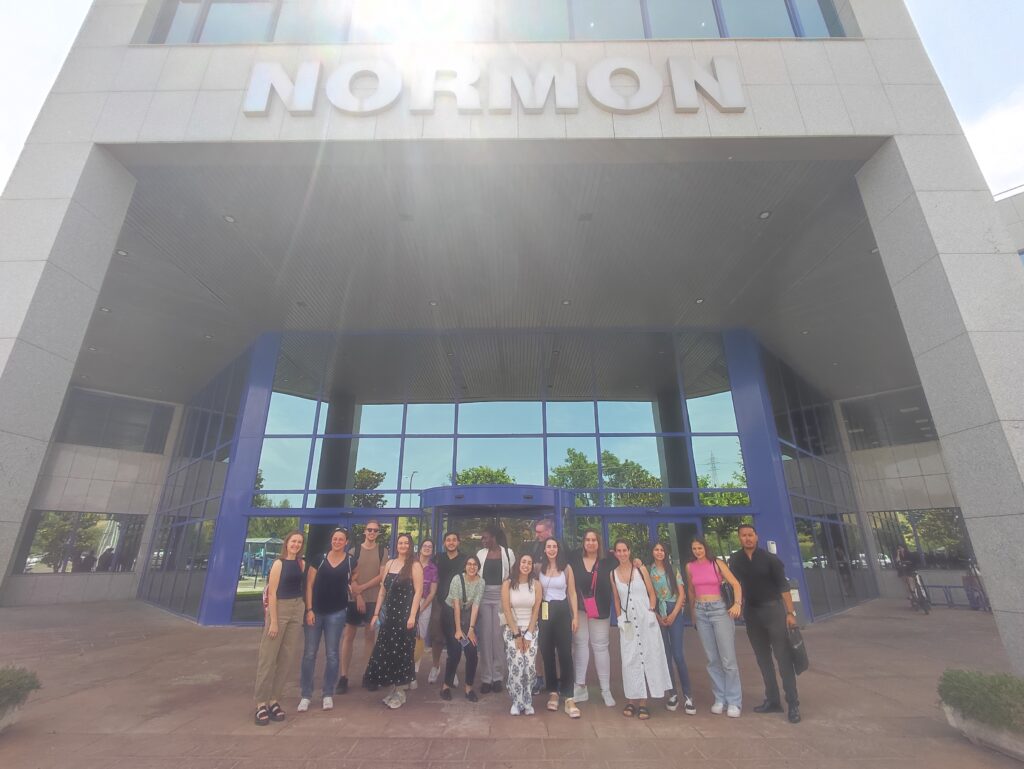In this post, two graduates from the One Health MSc programme share their experiences of participating in a UNA Europa course on One Health approaches to antimicrobial resistance and the subsequent in-person workshop held in Madrid, in June 2025. The workshop was hosted by the Department of Pharmaceutics and Food Technology, at the Universidad Complutense Madrid (UCM); participation of our students was fully funded through the UNA Europa grant that the One Health programme team helped to secure.
This post is written by Dr Christiana Hebel, who graduated from the programme in 2023, and Maresa Neuerer, who completed the Postgraduate Diploma in 2025, in parallel with her own PhD studies on AMR. You can read more about Christiana and her work and research in a separate blog post.
For more information on the UNA Europa Course and to view recordings of the sessions that staff and students from the One Health MSc programme contributed to, please click on the following links for sessions on (i) One Health and AMR (ii) AMR and Ecosystem Health and biodiversity and (iii) Systems change and AMR.
UNA Europa Workshop in Madrid: A Rewarding Experience
Between 11-12 June 2025, we had the opportunity to attend the UNA Europa workshop ”Tackling Antimicrobial Resistance (AMR) by 360 One Health Approach”, organised by Assistant Professor Ana I. Fraguas Sanchez and Dolores Serrano of the Complutense University’s Department of Pharmaceutics and Food Technology in Madrid, Spain, together with Elena González from the Department of Pharmacology, Pharmacognosy, and Botany.

The workshop brought together postgraduate students and early-career researchers from the four collaborating institutions in Spain, Finland, Germany, and the UK to explore emerging technologies and strategies in the field of AMR. As students from the One Health Master’s programme at the University of Edinburgh, we found ourselves in a room full of pharmacists, a slightly unfamiliar landscape for us which turned out to be an enriching experience. The workshop not only introduced us to state-of-the-art research in biopharmaceuticals but also made us reflect on how different disciplines can approach the same problem from different angles.
The workshop started off with a fascinating three-hour visit to Normon Laboratories, a major pharmaceutical manufacturer of generic medicines for the human market. This provided a unique opportunity to see the inner workings of a modern pharmaceutical production facility from, and was possibly the highlight of the trip. For those of us who had never set foot in a pharmaceutical factory before, seeing the scale, precision, and regulation involved was a fascinating experience that gave us a new appreciation for the complexity behind something as seemingly simple as a tablet.
Back at Complutense University, we were welcomed with a series of talks on “Biopharmaceuticals as new antimicrobials,” “Emerging Platforms in Antimicrobial Resistance Research,” and “Innovative Strategies in Drug Development.” These presentations were a great introduction to the workshop and laid the foundation on how innovation can help combat AMR.
The second day continued with a session on “Innovative Strategies in Drug Development II,” including a practical workshop on 3D printing technology for capsule production. This was an inspiring demonstration of how modern technology and new tools may reshape and individualise healthcare. We also had the chance to visit to the Pharmacy Museum at UCM, offering a historical perspective on the field of pharmacology. The workshop concluded with a wrap-up session. many discussions, and valuable networking opportunities.

While the workshop provided space for interdisciplinary conversation, it became clear that the concept of One Health was not widely known among the participants. This presented a valuable opportunity for us to weave One Health into our discussions. We found that participants were open and curious and we were able to encourage them to consider interdisciplinary approaches beyond their usual fields. Attending this workshop reminded us of the importance of building bridges across disciplines. No single field holds all the answers and learning how to connect and collaborate across disciplines might be just as important as developing the next breakthrough drug. We’re grateful to our programme and professor for the opportunity to attend, and to all the workshop organisers and participants for creating this space. It was also a bonus to connect with each other in person.
